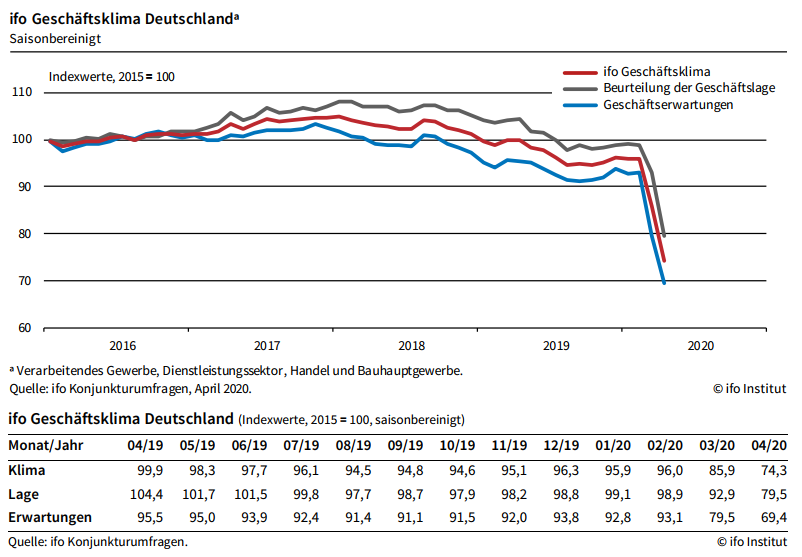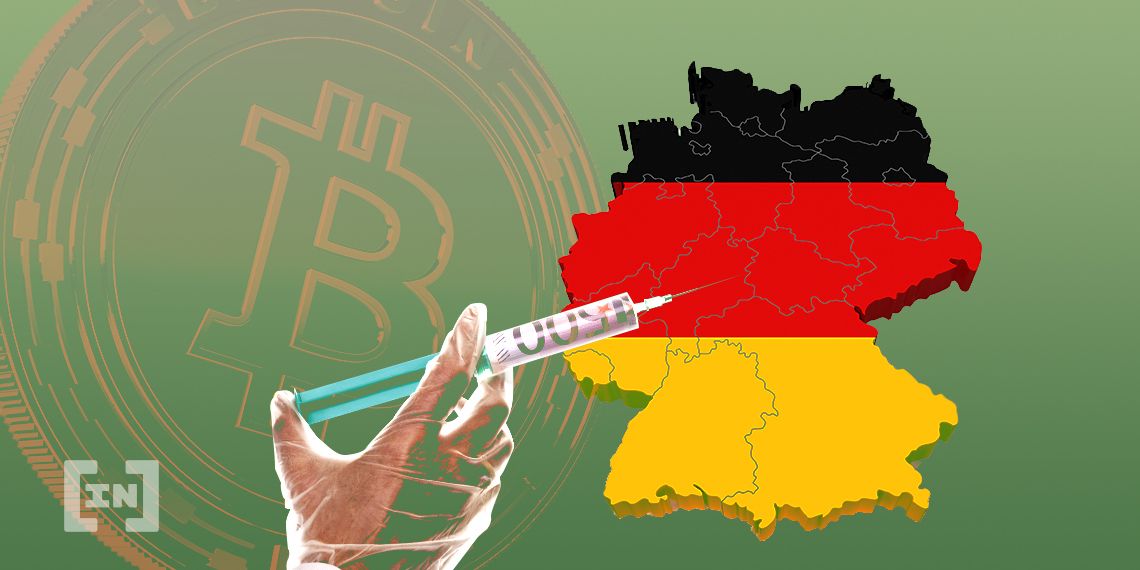The IFO index reading, which tracks German market sentiment, has seen record lows for the second month in a row. This indicates that German businesses are pessimistic about both the present and the future.
The COVID-19 outbreak has affected every aspect of life but none is perhaps as evident as the economies of the world. A record number of people have filed for unemployment in countries like the United States and businesses have been forced to suspend operations or close up altogether.
Economic Outlook Pessimistic in Germany
The prolonged period of business activity cessation has proven to have devastating consequences for the German economy. It was reported on April 24, 2020, that the German IFO Index reading has sunk to some of its lowest ever points. The IFO is an index that is run by the IFO Institute, a Munich-based think tank. The reading is determined by measuring the sentiment among 9,000 German companies and is commonly used as an indicator of the business climate in Germany.

Long Road to Recovery
In the meantime, the German government has approved a 10 billion euro stimulus package, as well as initiatives like unemployment benefits and reduced VAT for certain businesses. With the measures about to be implemented and the slow resurrection of some businesses, it is not impossible that the index will see some improvement in May. However, public events are still banned in Germany until the end of August 2020 and this means that a full recovery will not likely be possible until then. IFO President, Clemens Fuest, has stated that the middle of the year is the earliest time for any possible recovery and that when such a recovery comes, it will not be a ‘V’ shaped spike on the charts. Chancellor Angela Merkel has promoted a message of endurance, stating that the pandemic is still in its early stages and has also called for increased support from the European Union.Disclaimer
In adherence to the Trust Project guidelines, BeInCrypto is committed to unbiased, transparent reporting. This news article aims to provide accurate, timely information. However, readers are advised to verify facts independently and consult with a professional before making any decisions based on this content. Please note that our Terms and Conditions, Privacy Policy, and Disclaimers have been updated.

Rahul Nambiampurath
Rahul Nambiampurath's cryptocurrency journey first began in 2014 when he stumbled upon Satoshi's Bitcoin whitepaper. With a bachelor's degree in Commerce and an MBA in Finance from Sikkim Manipal University, he was among the few that first recognized the sheer untapped potential of decentralized technologies. Since then, he has helped DeFi platforms like Balancer and Sidus Heroes — a web3 metaverse — as well as CEXs like Bitso (Mexico's biggest) and Overbit to reach new heights with his...
Rahul Nambiampurath's cryptocurrency journey first began in 2014 when he stumbled upon Satoshi's Bitcoin whitepaper. With a bachelor's degree in Commerce and an MBA in Finance from Sikkim Manipal University, he was among the few that first recognized the sheer untapped potential of decentralized technologies. Since then, he has helped DeFi platforms like Balancer and Sidus Heroes — a web3 metaverse — as well as CEXs like Bitso (Mexico's biggest) and Overbit to reach new heights with his...
READ FULL BIO
Sponsored
Sponsored

